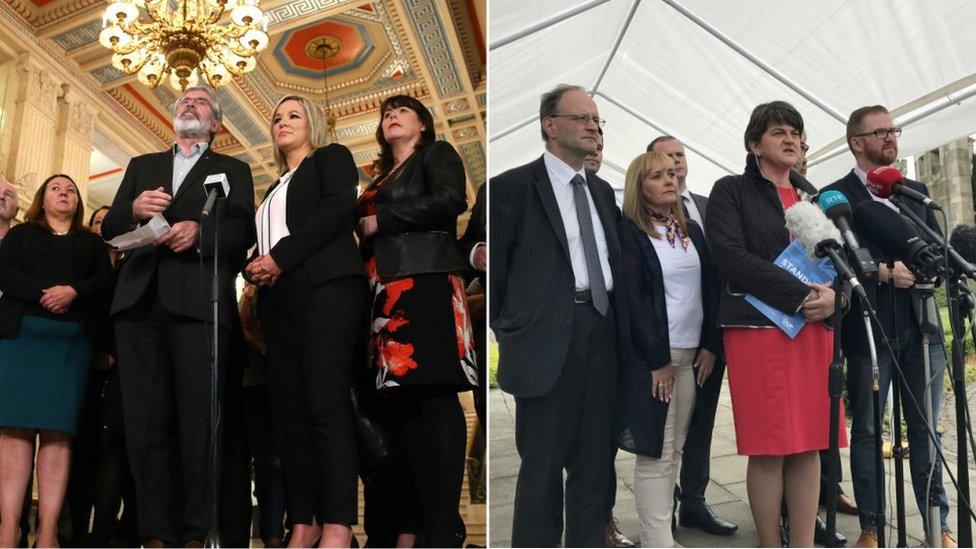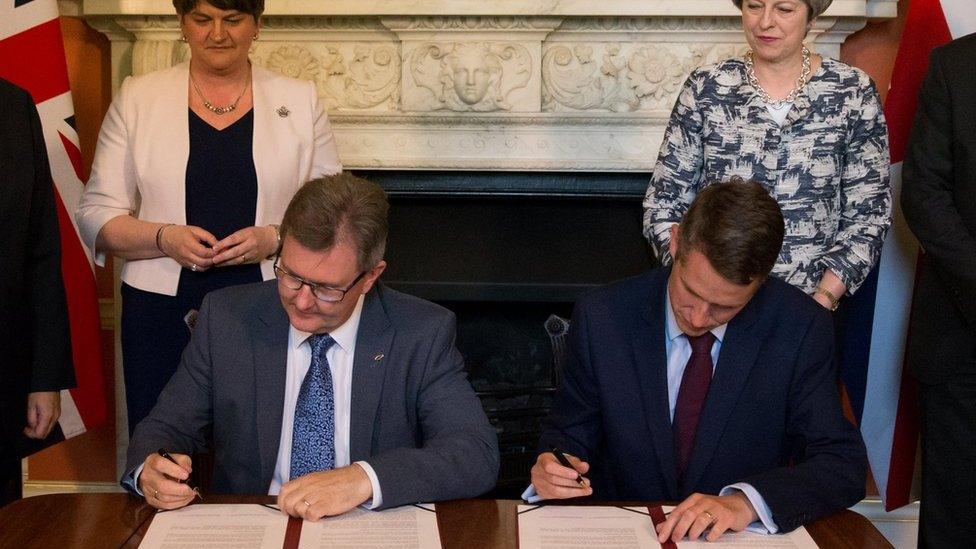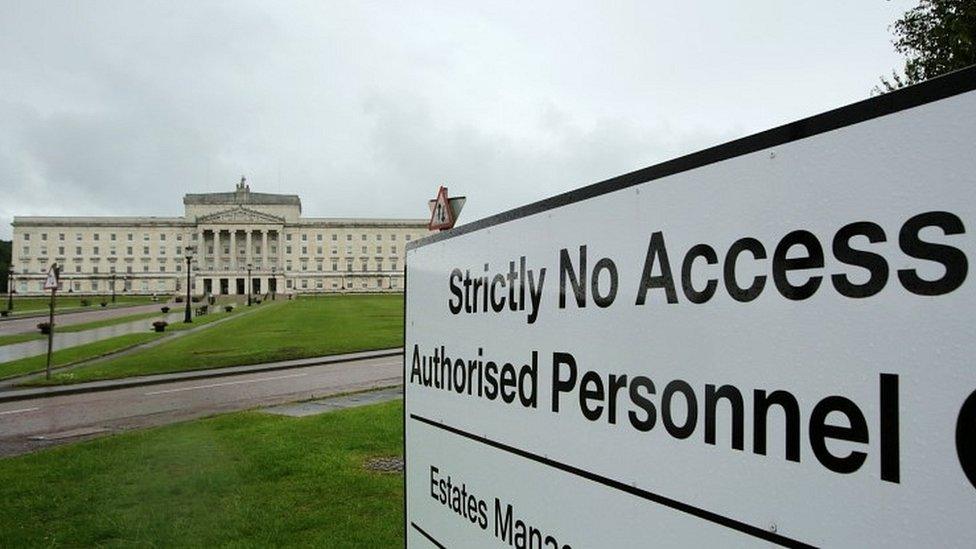What caused the Stormont stalemate?
- Published

It was announced on Monday that talks had failed to restore a power-sharing executive
So a pause in the talks and no progress likely before September.
Was that a consequence of the DUP Conservative deal, as Sinn Féin argued?
Or would the gap between the two parties have proved too wide to bridge in any case?
It's true that negotiating the Westminster deal took up the DUP's time.
But by the point the talks broke down, the crunch issues had already been fairly well aired, so the failure seems more about the two sides' unwillingness to budge, rather than lack of detailed preparation.
The extra cash offered by the Conservatives must surely have made resurrecting devolution more attractive to both parties.
But republicans claim the DUP got carried away with their newfound Westminster status and became less ready to compromise.
The DUP rejects that, insisting Sinn Féin had only themselves to blame for drawing up multiple red lines.

DUP MP Sir Jeffrey Donaldson and Tory Chief Whip Gavin Williamson signed the deal in June
Sinn Féin politicians say they didn't concede on their insistence that Arlene Foster shouldn't be first minister until an inquiry into the Renewable Heating scandal is concluded.
But the realpolitik is that, after the DUP leader's triumphant Westminster election, hardly anyone thought Sinn Féin could stick to that demand.
Fragile state of politics
The expectation was that they would bin the demand in return for a clear win on Irish language legislation.
But the DUP did not feel the need to give ground on a stand-alone Irish Language Act and Sinn Féin appears unwilling - no matter how much extra cash is on offer - to concede two red lines without much to show their supporters in return.
Maybe the DUP's frame of mind was influenced by its strong general election result.
However, it's quite easy to imagine this breakdown happening irrespective of the fragile state of wider UK Politics.
So we drift on, run by civil servants, supposedly benefitting from extra resources but hampered from the inertia inherent in having no Ministers to make decisions.
Don't expect the MLAs to lose their salaries any time soon - remember 28 of them belong to the party keeping James Brokenshire in power.
For that, at least, the other parties can inwardly thank the DUP.
For the next eight weeks or so we look certain to remain in stalemate - after all, it's what Stormont does best.
- Published4 July 2017

- Published27 June 2017